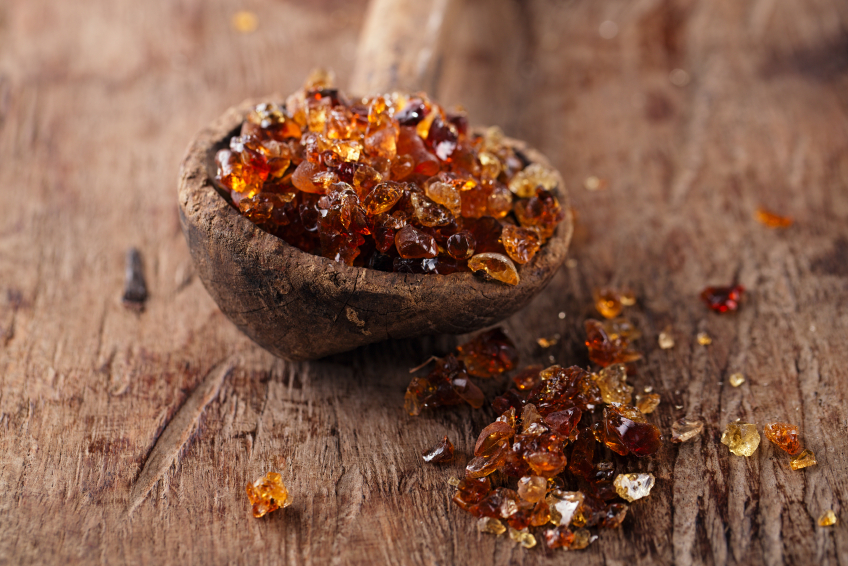The war in Sudan has left farmers of gum arabic, a vital raw material for global industries such as carbonated drinks, without local buyers, but industry groups have assured that global inventories are sufficient for now.
Collected from the thorny acacia tree, the golden resinous mass is an emulsifier used in everything from soft drinks to chewing gum to pharmaceuticals.
Sudan is the world’s largest producer of raw gum, a major source of foreign exchange for the northeastern African country.
The sector has weathered repeated conflicts, a warming climate and decades of sanctions.
But since the war began on April 15 between the two generals, now “producers are grappling with disaster,” said gum arabic trader Adam Issa Mohammed, 350 kilometers southwest of Khartoum ( 220 miles), he told AFP in El Obeid, capital of North Kordofan province. .
The city is one of the main local markets for Sudan’s gum arabic producers.
Other agricultural sectors are also dealing with wartime shortages of buyers, with fuel shortages hampering shipments to markets and driving up prices.
But the war’s impact on gum arabic was particularly high, given its importance to the Sudanese economy and the five million Sudanese the industry served.
– “No one buys” –
Fighting between army commander General Abdul Fattah al-Burhan and deputy general and rival General Mohammed Hamdan Dagro has already killed nearly 1,000 people and displaced more than a million from their homes. The dysfunctional economy was further destroyed.
Most of the conflict is in the capital Khartoum (some reduced to smoldering rubble) and the western Darfur region.
Witnesses also reported fighting at El Obeid.
Further east, the Gedaref region, near the Ethiopian border, and its acacia trees escaped the fighting, but gum arabic farmers continue to suffer.
Trader Adam Issa Mohammed said: “No one buys because they have a lot of goods to sell, but exporters and distributors can’t find carriers willing to risk their trucks to carry them. ” says.
Gum arabic producer Ahmed Mohammed Hussain said the lack of buyers had caused prices to drop by about 60%.
“The price of a ton has dropped from 320,000 Sudanese pounds to 119,000 Sudanese pounds ($627 to $233),” Hussain told AFP.
The risks are clear. Everything, including customs and cargo handling, must pass through the war zone of Khartoum.
Truck drivers not only risk their lives, they spend a lot of their time competing for gas. Even if they are found, the price per liter is now 20 times what it was before the war.
However, Sudan’s port authority told AFP that “imports and exports are proceeding as normal” and that the port is conducting business as usual.
But Osman Abdelsalam, a Sudanese shipping company employee who has viewed the data, said the numbers were declining.
“Since the war began, exports from Darfur and Kordofan through Khartoum, especially gum arabic, have been greatly affected,” he told AFP.
Sudan’s Gum Belt stretches from Gedareff through Kordofan and across the country to Darfur in the west.
According to the International Association for the Promotion of Gum International, a Hamburg-based group of importers, processors and producers, there is currently no supply threat to users of the gum arabic industry.
“Members maintain sufficient stocks of gum arabic imported from Sudan and other countries in their warehouses to absorb potential supply disruptions,” the statement said.
The group added that Chad and Nigeria are also among the alternative producers, so “immediate supply is not expected to become a bottleneck due to what is currently happening in Sudan.”
But industry insiders in Sudan and elsewhere cannot say how long global stocks will last.
– Global importance –
Pre-war data from the French development agency AFD show that Sudan’s exports accounted for 70% of the world’s raw gum supply.
According to central bank statistics, the latest official data available, gum arabic exports from Sudan totaled 88,000 tonnes in 2021, generating a revenue of $110 million.
Mostafa Al Saeed Khalil, chairman of Sudan’s gum arabic council, said his figures show exports of 60,000 tonnes in 2022, which he believes is an underestimate. said there is.
Khalil could not foresee the effects of the war.
Even before the conflict, low prices in local markets forced many farmers to cut down trees for building materials and firewood. Some left the land entirely to work in nearby gold mines.
Fighting across Sudan is affecting other sectors, leading to a “partial deindustrialization” of the country and a much poorer future, said Ary Berger, a researcher at the University of Gothenburg in Sweden. .
Therefore, gum arabic is becoming more and more important.
“If you lose your gum arabic belt, you will drown,” Khalil warned.
AFP
